CONTENTS
To the memory of
Alan Davies and John Hirst
The Real is what the senses see.
The Ideal is what the Soul sees.
ALFRED DEAKIN, 1879
ALFRED DEAKIN WAS born two years after Ned Kelly in the new British colony of Victoria. Kellys parents were an Irish ex-convict from Van Diemens Land and his spirited young Irish wife. Deakin was the only son of respectable goldrush immigrants, one of the thousands of young couples who left England in the late 1840s for a better life abroad. When Kellys father crossed Bass Strait in 1848 at the expiry of his sentence, it was only fourteen years since the Henty Brothers had settled at Portland and begun to open up the Port Phillip District to Europeans and their sheep. The white population was fifty thousand, with fifteen thousand of them living in Melbourne, which was already established as the capital.
In 1850 the British government legislated for the separation of a new colony from New South Wales, and it was named Victoria after the reigning queen. Soon afterwards, gold was discovered in the Central Highlands and the rush was on. William and Sarah Deakin were already in Adelaide with their baby daughter. Along with much of Adelaide they headed for the goldfields. By 1856, when Alfred was born, they were in Melbourne, living in Fitzroy, and William was running a coach to Bendigo.
Gold transformed Victoria from a minor pastoral settlement into Britains most prosperous and progressive colony. The speed of the transformation was astonishing. Within a decade Victoria had half a million new settlers. Most were literate and the proportion of skilled artisans was higher than in the other Australian colonies. Their politics had been shaped by Chartism, the working-class political movement which demanded democratic reform of Britains class-bound political institutions, and the immigrants were determined to avoid recreating the hierarchies and inequalities of the old world. Ten years after being granted self-government Victoria had achieved most of the Chartists democratic demands: regular elections for both houses of parliament, no property qualifications for members, manhood suffrage for the lower house, the secret ballot and regular electoral redistributions. The ramshackle unpaved town on the banks of the Yarra had been replaced by a modern metropolis with grand stone buildings, well-lit streets, elegant parks and gardens, and fashionable shops and villas. During the 1850s a public library, an art gallery and a university were founded, government buildings erected, and Parliament House begun on the hill east of the city. It was a new beginning and people spoke of the time before the gold as if it were another country.
By 1888, when the centenary of the First Fleets arrival was celebrated, Victoria was far and away the leading Australian colony and Marvellous Melbourne a world-class metropolis. Thirty-two-year-old Alfred Deakin was chief secretary, a political wunderkind who had been a member of parliament for almost a decade. Ned Kelly was already dead, hanged on 11 November 1880 for murdering a policeman. Deakin saw the hanging, most likely as a reporter for the Age, one of the fifty men allowed inside the Melbourne Gaol to witness the drop.
The differing fates of these two native sons, outlaw and lawmaker, exemplified the profound shifts that had taken place in Victoria since their births in the mid-1850s. Kelly was born into rural poverty in the hills in northern Victoria, his extended family supplementing their meagre incomes with horse and cattle duffing. The lawless frontier daredevilry of the Kelly Gang had no place in the respectable society the goldrush immigrants were building for themselves and their children. But it is the outlaw who has survived more vividly in popular memory. His homemade armour is etched into the national myth by Sidney Nolans jaunty silhouette and his crazy bravery has become a symbol of the defiance of authority so many Australians like to believe is part of our character.
Deakin is remembered too, but not so vividly, more as a bearded worthy than a national icon. He was Australias most important prime minister in its first ten years after federation, but he sits uneasily as a representative Australian figure. He is too intellectual, too respectable, for the larrikin masculinity of the Australian legend that runs from convicts and bushrangers like the Kellys through the drovers and shearers and men from Snowy River, the early labour unions and the Anzacs, to Crocodile Dundee and footballers out on a spree, that long, meandering line-up of mates who stagger and stride through our national story.
Deakin was never a mate. He didnt swear and rarely drank. He didnt play organised sport nor fight in the Great War, was unfailingly courteous and, although many loved him, he always held himself a little aloof. He was also enormously well read, in philosophy, theology, comparative religion and the worlds literature, including poetry, his first love. In short, he was middle-class, well-educated, urbane and supremely self-confident, like the city and the colony in which he grew to manhood. When he first visited England in 1887 to attend the Colonial Conference, Britains political leaders were captivated by his charm and his gifted oratory and astonished by his audacity in arguing with them about imperial foreign policy. After all, he was only a thirty-year-old colonial. In 1887 he was the voice of young Australia holding its own at the centre of empire, Australias greatest native son, and young, native-born men like himself were thrilled when he refused a knighthood. He was their representative.
Deakin became a politician, almost by accident, when other ways of making a living eluded him. He had qualified for the bar, but briefs were scarce for a young man with few connections. To earn money he began writing for the Age, where he became close to David Syme, its powerful editor. In 1879 Syme suggested him as the Liberal candidate to a local electoral committee and to everyones surprise, including his own, he won the seat.
During this first campaign Deakin revealed himself as an extraordinary orator. Political oratory was at its height, with public political meetings sites of entertainment as well as persuasion. Supporters would cheer and applaud in the call-and-response structure of evangelical preaching and hostile interjectors would be dispatched with wit. For the successful orator it was an exhilarating experience, and Deakin was brilliant at it. With rapid delivery, words, phrases, images, arguments, quotations and examples streamed from his mouth in complex, well-shaped sentences as he strode around the platform, gesturing for emphasis, his voice rising on crescendos of fervour and gliding down to quiet appeals. Tall and strong, with thick dark hair and mesmeric brown eyes, Deakin had the compelling physical presence of a great actor and the stamina for long performances in which body, mind and voice worked in unison.
Deakin knew he was special, and he had something of the narcissists intense self-focus, but he sought to harness his gifts and his energy to higher ends. He dabbled in spiritualism, mainly in his late teens and early twenties, as did many others in this period when conventional Christian beliefs were being undermined by discoveries in geology and archaeology and by Darwins theory of evolution. Spiritualism retained Christianitys faith in an immortal soul and in the divine order of the universe, and believed that the dead could communicate from beyond the grave. Some prophecies early in his political life persuaded Deakin that his destiny lay in politics, as a servant of divine progress towards a more humane and equal society.

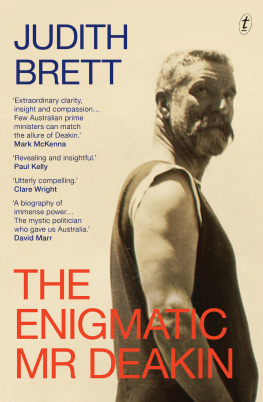
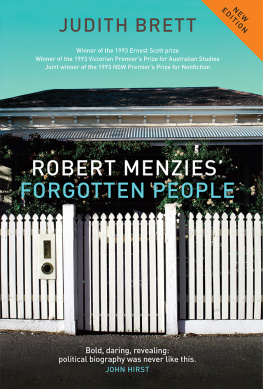
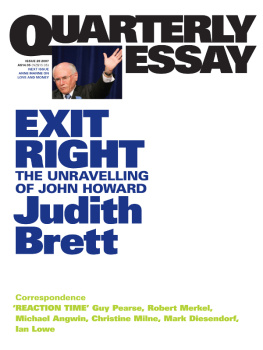
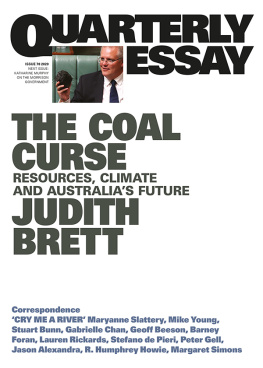
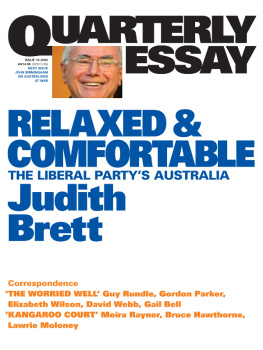
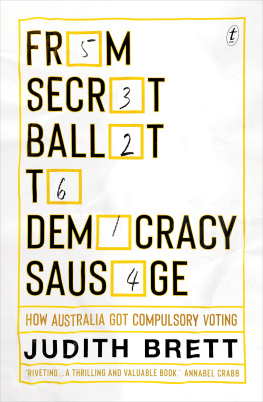

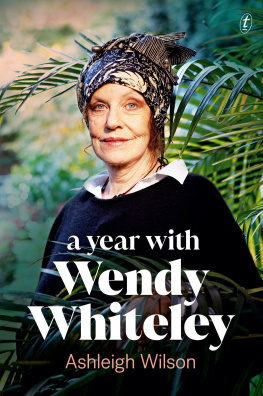

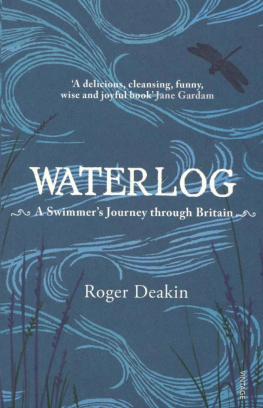
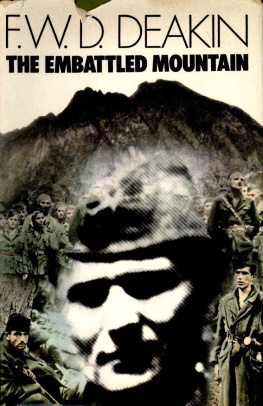
![Simon Brett [Simon Brett] - Mrs. Pargeter’s Pound of Flesh](/uploads/posts/book/142156/thumbs/simon-brett-simon-brett-mrs-pargeter-s-pound.jpg)
